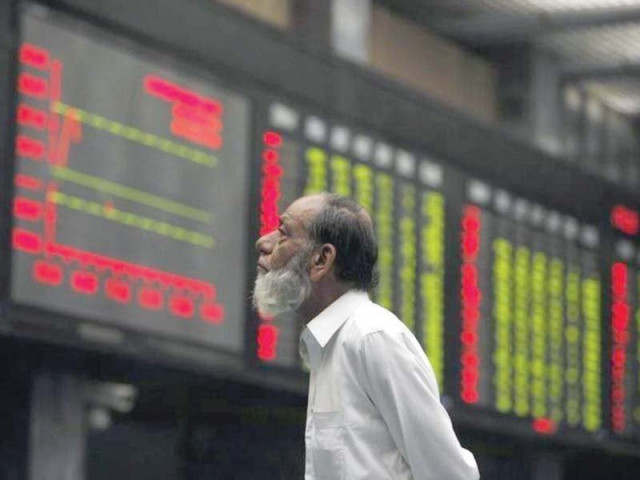Emerging market investors to return over time, says PSX
Bourse describes recent stock market plunge as ‘not unusual’

The amount of global investment in emerging markets was well over a trillion dollars whereas the amount of investment in frontier markets was a fraction of that. PHOTO: REUTERS
However, the day soon turned sour for investors as the KSE 100-share Index - the market’s performance benchmark - lost 1,810.76 points to fall below 50,000.
Many blamed PSX’s clearing agents who struggled to handle the historically high foreign trade volume of $987 million conducted on Wednesday for the abysmal performance. Others found that investors were shy following the government’s announcement to impose additional taxes on investors in the new budget.
However, the PSX, in a recent statement, announced that the decline in the KSE-100 index was ‘not unusual’.
“It should be clarified that once a country exits the Frontier Markets index, all funds following that index must also exit immediately,” said the PSX. “Nevertheless, those funds which follow the Emerging Markets index do not necessarily have to enter immediately, especially if the weight is small as in the case of Pakistan.”
The bourse believes that this is what occurred which led to the KSE-100’s decline in the short run. However, it emphasised that the amount of global investment in emerging markets was well over a trillion dollars whereas the amount of investment in frontier markets was a fraction of that.
“As emerging market investors return to Pakistan over time, the net foreign investment flows are likely to become much more positive. Additionally, this pattern of underperformance of the index after inclusion in the EM index is not unusual,” it said.
“Many domestic investors become over-optimistic and a sentiment-driven rally takes the market up before the event date. Once the event occurs, weak-holders sell out and serious investors gradually begin to move in as they find attractive valuations. The same pattern is being seen in Pakistan market also,” it added.
Meanwhile, the PSX stated that the notion of agents struggling to handle the historically high foreign trade volume was incorrect.
“All the transactions were smoothly handled by the capital market infrastructure institutions, which include the PSX, the National Clearing Company of Pakistan Limited (NCCPL) and Central Depository Company (CDC),” it said.
“For three consecutive days and nights, the information technology as well as the operation teams of the exchange, the NCCPL and the custodian banks worked around the clock to ensure that the transactions were handled seamlessly.
“Our combined performance earned our capital market institutions praise from the international investment community for their professionalism and dedication,” it added.
Positive future
The stock exchange said the significant symbolic value of a country being classified as an emerging market was too great to be ignored.
According to the bourse, being part of the EM index signals to international investors that the country’s capital market has attained greater maturity in terms of efficiency, governance and regulatory framework. It encourages longer-term investments in both portfolio mode as well as foreign direct investment.
“As the country’s presence is seen by a much larger universe of global investors, there are greater opportunities for Pakistani companies who wish to raise capital by listing. Thus, Pakistan’s inclusion in the MSCI EM index should be viewed from this broader perspective, rather than the KSE-100 performance over the short term,” said the PSX.
“The market’s total capitalisation has gone up from around $30 billion to over $90 billion in the last five years. The average daily value traded has increased from $50 million five years ago to over $200 million at present.”
In the last 10 years, the KSE-100 index has shown average annual return of over 23% versus average inflation of around 9%, thus providing investors with real return of 14% each year. “This is what the real performance of Pakistan’s stock market has been,” it added.
Published in The Express Tribune, June 4th, 2017.
Like Business on Facebook, follow @TribuneBiz on Twitter to stay informed and join in the conversation.



















COMMENTS
Comments are moderated and generally will be posted if they are on-topic and not abusive.
For more information, please see our Comments FAQ